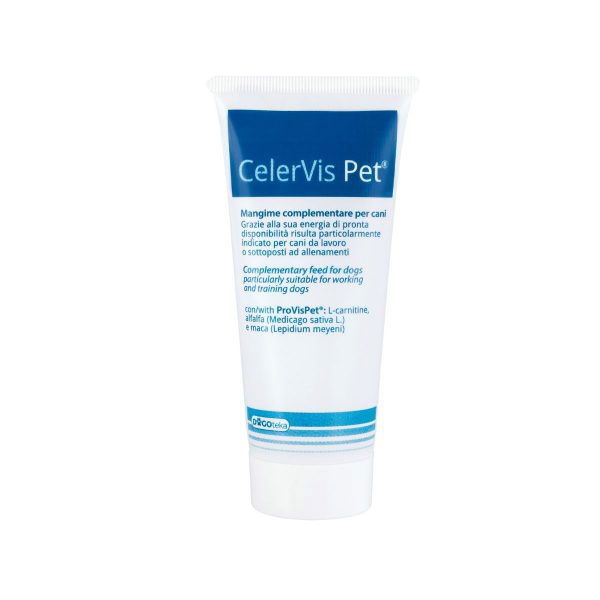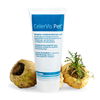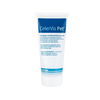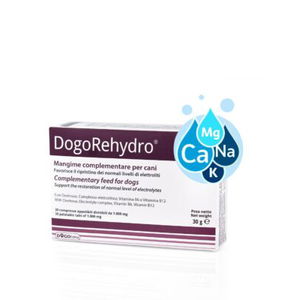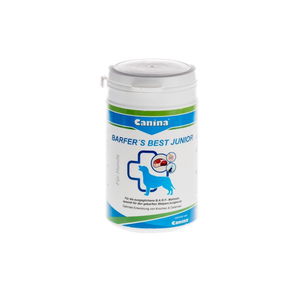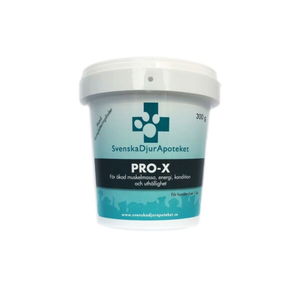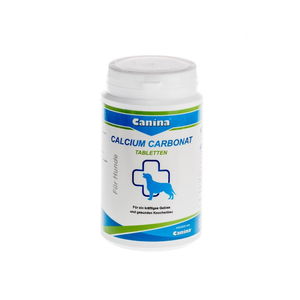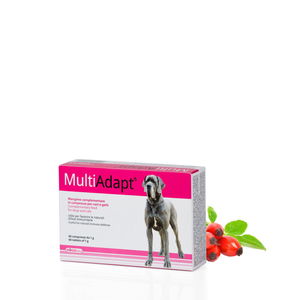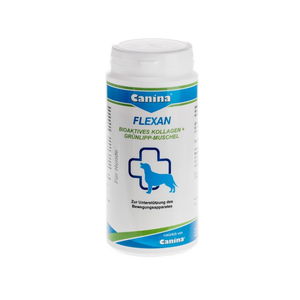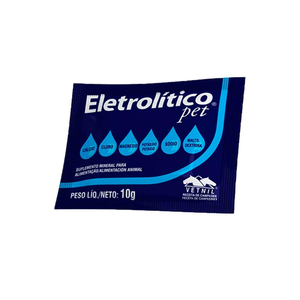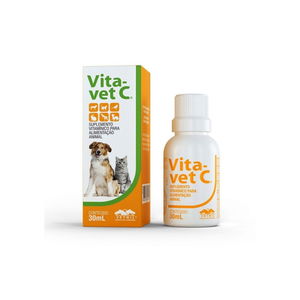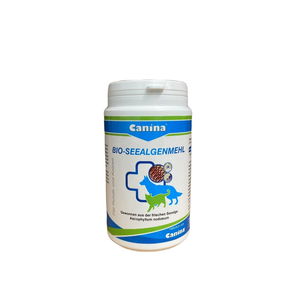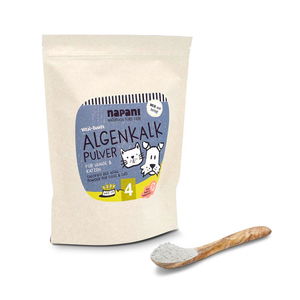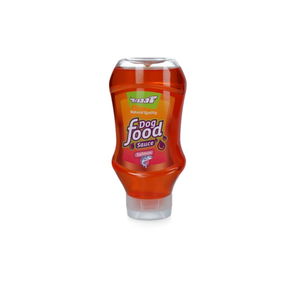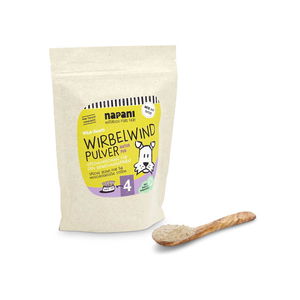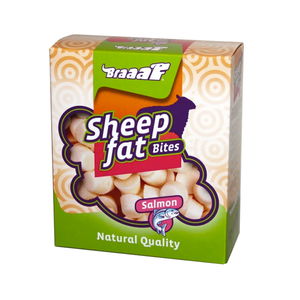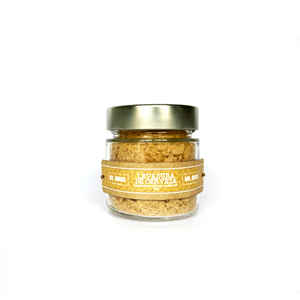CelerVis Pet® Energy Paste
- for an instant energy boost
- for working or sporting dogs (during and after activity)
- for weak dogs, especially puppies
- speeds recovery after surgery
- for females during and after childbirth
- natural ingredients working synergistically
- Delivery fee
- Secure connection Your data is protected.
- Satisfaction Guarantee 14-Day Return Policy
For Instant Energy Boost: During and After Activity or Strenuous Efforts
CelerVis Pet® supplement is designed specifically for dogs that need an energy boost. These include working or sporting dogs, pregnant females, older dogs, recovering dogs, or particularly weak puppies. The chosen formula allows the body to extend the use of stored energy, which increases during work, sports, or illness (such as vitamins B12 or B6; minerals like iron; proteins like taurine and carnitine). Just like humans, dogs that are subjected to constant exertion due to work or sports, requiring a lot of energy, need an energy supplement.
The supplement is also beneficial for pregnant females already a week before giving birth, especially if the female is not eating well. When birthing begins, offer the recommended daily dose, divided throughout the day. This will allow the female to use not only the reserves stored in previous days but also add a portion right before her real need arises. It also strengthens puppies, particularly weakened and recovering puppies.
Recommended for dogs that:
- practice sports or work
- are recovering after treatments
- are weakened
- are lactating females
- have undergone surgery
Active Ingredients:
VEGETABLE OILS
Vegetable oils are part of the fat family, which play an important role for dogs. Fats provide energy, almost twice as much energy as carbohydrates and proteins; the latter, if not needed, are not consumed immediately but are stored, representing an energy reserve, which is used when needed. They also play a key role in the development and use of fat-soluble vitamins like A, D, E, and K. They are used for thermal insulation and provide mechanical protection in joints.
FLAXSEED OIL - is rich in omega 3 fatty acids, which is essential for every pet's diet. Omega 3, as well as omega 6, are essential fatty acids that the body does not produce on its own, but the body obtains them through appropriate nutrition. Among all foods, flaxseed oil has the highest percentage, approximately 57% of fatty acids, in a balanced ratio of 1:4 (omega 3 and omega 6).
SOYBEAN OIL - rich in various important dietary elements, such as: polyunsaturated fatty acids (like flaxseed oil, especially omega 3 and omega 6 at different concentrations), vitamin B6, and vitamin E. Benefits: source of energy, absorption of vitamins, role in growth and development, maintaining good health (including skin and coat), and modulation of inflammatory response (antioxidant). Soybean oil is an excellent energy source for both sporting animals and the weakened.
AMINO ACIDS
L-CARNITINE - is an important nutrient for animal health. Its fundamental role is the transport of essential fatty acids. Without L-carnitine, fatty acids cannot be converted into energy necessary for normal daily activities and proper immune system functioning, especially in very active animals (serves as an energy source "ready to use"). It is also used as a joint and cardiovascular function protector.
TAURINE - found as a free amino acid in animal tissues: meat, poultry, fish, and shellfish are particularly rich in it. In most mammals, it can be synthesized from methionine and cysteine, but it can be dietarily deficient. Such a potential deficiency leads to a range of changes affecting the conjugation of bile acids, resulting in decreased absorption of vitamins and fats, central retinal degeneration with possible vision loss, and heart failure.
L-LEUCINE - one of the essential branched-chain amino acids, which needs to be introduced into the body with diet, as it cannot be synthesized by the body. It is important for muscle growth and endurance, promotes protein synthesis, supports metabolism, and serves as an energy source during stress periods.
L-VALINE - is essential for muscle nutrition. It can be used to produce energy from food or in the case of needing to mobilize endogenous protein reserves. It is also important for mental functions, muscle coordination, and similar nerve functions.
CREATINE - participates in the supply of muscles with energy. Creatine intake increases the availability of usable energy at the muscle level. It also promotes better use of proteins during muscle contraction, consequently increasing the volume and density of muscle mass.
VITAMINS
Vitamins are very important bioregulators, as they, together with other molecules, lead all physiological processes, directly and indirectly, through enzymatic mechanisms. Based on solubility, they are classified into those soluble in fats and those soluble in water (do not accumulate in the body, so it is necessary to introduce them into the diet every day). All vitamins are responsible for specific tasks and, if lacking, can cause fatigue or dysfunction.
VITAMIN B6 - pyridoxine, very common in foods, especially in wheat, milling by-products, animal meals, and seed germ; before being used by the body, it is converted into pyridoxal pyridoxamine, the fundamental components of two coenzymes. They include enzymatic reactions in which amino acid transformations and amino group transfer (transamination) take place. It is also thought to intervene in the production of antibodies in the blood and the synthesis of fats from amino acids. It is indispensable for the proper functioning of the immune and nervous systems. Pyridoxine is usually produced by the intestinal microbiota, but not always in sufficient quantities to meet needs.
VITAMIN B12 - cobalamin, which is not found in vegetables, is found in liver extracts, various animal-derived foods (fish meal, meat meal, and whey), and is part of the APF complex (animal protein factor). It is the most important vitamin essential for growth and hematopoiesis (formation of red blood cells, indispensable for oxygen distribution); necessary for the synthesis of nucleic acids influencing protein metabolism, synthesis of choline, and methionine, especially in the lipid and glucide, catalyzing various enzymatic reactions. Therefore, for protein metabolism, good nervous system functioning, necessary regeneration of mucous membranes, especially considered as a natural energy source for all cells.
NIACIN - vitamin PP or vitamin B3 is present in herbs, hay, and components of feed concentrates (bran, meals, etc.). A vitamin that becomes part of the CoA molecule, carrying out the transport of acyl groups in ß-oxidation reactions of fatty acids, in fatty acid synthesis reactions, and pyruvic acid oxidation. It also determines the acetylation of choline, which in the form of acetylcholine represents a chemical mediator in the transmission of nerve impulses at the synapse level between neurons.
PANTOTHENIC ACID - Pantothenic acid is a water-soluble vitamin (also vitamin B5 or calcium D- pantothenate), present in almost all plant and animal foods, in greater or lesser amounts. It promotes the synthesis of unsaturated fatty acids, carrying out a trophic action; it therefore supports the nervous system, growth, development, and fatigue prevention.
TRACE ELEMENTS
Trace elements are essential for the nutrition of animals. An important aspect is that animals cannot synthesize them themselves, so they must be present in the diet to meet needs. They are protective principles as they prevail in controlling animal metabolism as constituents of the protein group of many enzymes. Additionally, some of them act as enzyme activators and participate in the genesis of hormones and vitamins.
IRON - is one of the most important microelements. Approximately 60-70% is contained in hemoglobin, with discrete amounts contained in myoglobin and in reserve organs, such as the liver, spleen, and bone marrow. Iron is related to oxygen transport. It also plays a role in disease resistance and is essential for effective immune system function. It is also important in preventing the deficiency of cellular enzymes, essential for the life of cells and energy production.
PLANT-BASED EXTRACTS
Today, herbs and medicinal plants are used to maintain the well-being of humans and animals; they can be used in the kitchen as spices; in the preparation of herbal teas, or worked with special procedures for the production of dietary supplements, veterinary products, cosmetics, and other products. For each medicinal plant, wherever a part is used (leaves, flowers, seeds, bark, roots, etc.) it is called a "drug." The drug contains a phytocomplex, i.e., a set of active ingredients characteristic of the properties of the plants, which cannot be reproduced by chemical synthesis. The synergistic action of the active ingredients of the phytocomplex provides the plant with a range of modern actions that no single component has.
MACA - Also known as the ginseng of the Andes, its roots contain the most important nutrients that are essential for the body. It improves responsiveness to stress, fatigue, and endurance. These invigorating and energizing properties are due to its effect on glycogenesis in the case of physical activity.
ALFALFA - contains various digestive enzymes, phytoestrogens, several flavonoids, vitamins, mineral salts, and large amounts of chlorophyll. The plant is used in cases of fatigue and weakness, both due to recovery and stress or sporting and/or work efforts.







